Agent-Based Model
Disease Spread
Imagine you want to simulate how a pathogen spreads within a population over a certain period of time. Agents influence each other — they infect one another when they meet by chance. States constantly change from "susceptible" to "infected" to "recovered." The following step-by-step guide shows you how to build your first agent-based model in just a few steps!
1. Create a new model
✔︎ Create a new model and name it "Disease Spread"
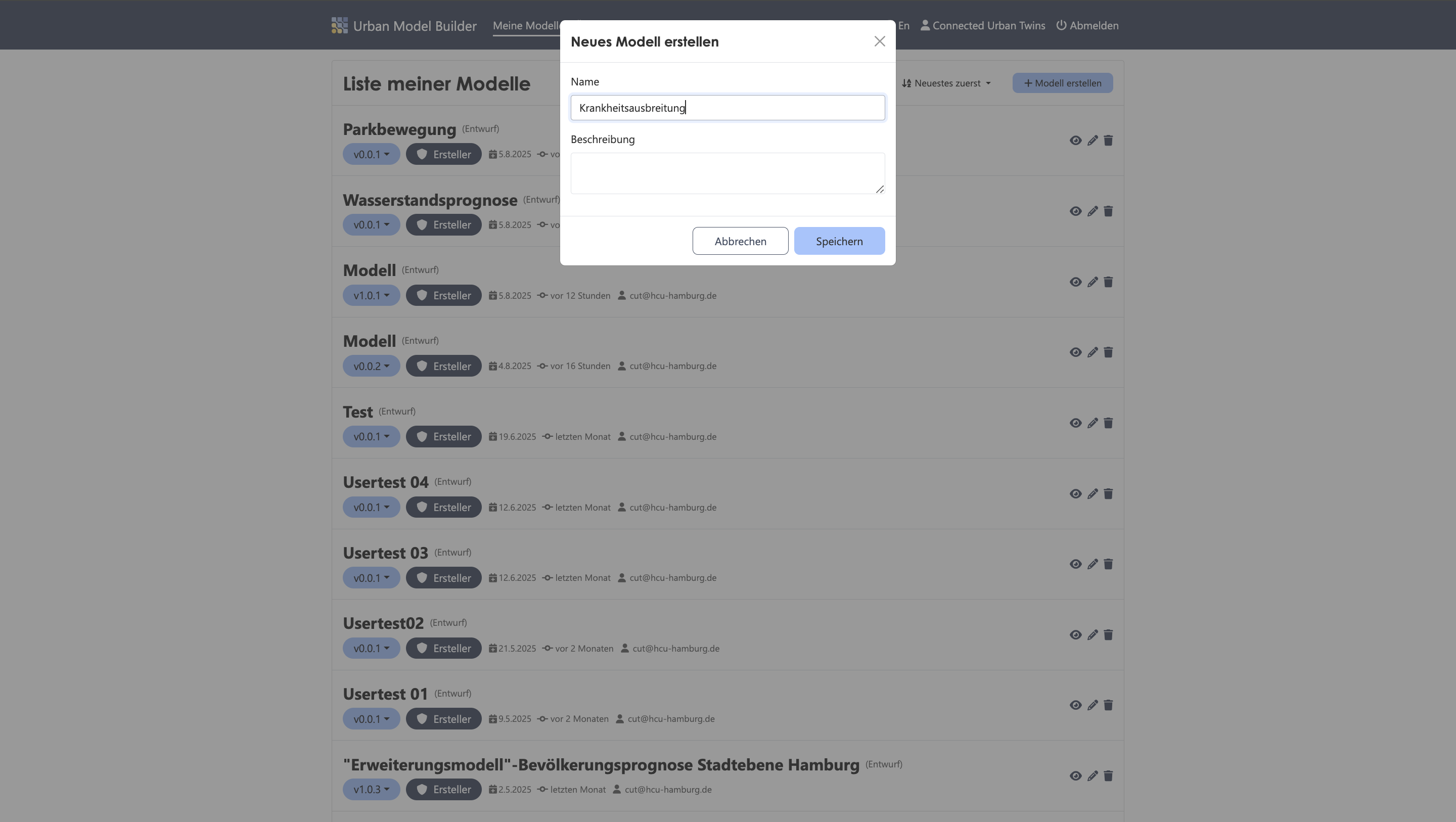
2. Create agent type "Person"
✔︎ Add an agent and name it "Person"
✔︎ Resize the primitive's window on the canvas to fit the next primitives inside
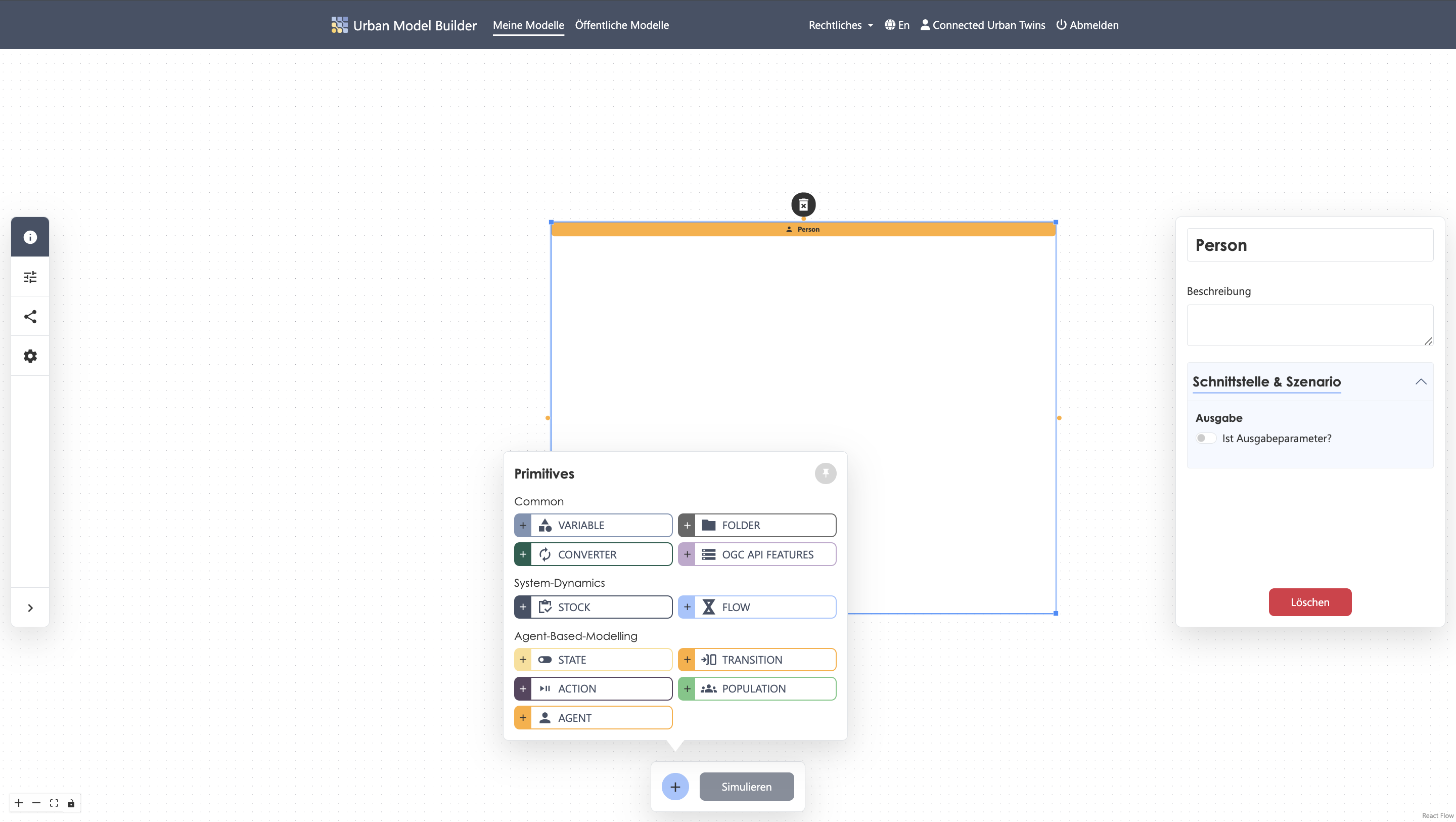
3. Create state "susceptible"
✔︎ Add a state to the "Person" agent and name it "susceptible"
✔︎ At the start time, this state is correct, so set the parameter to true
✔︎ Holding time: 0
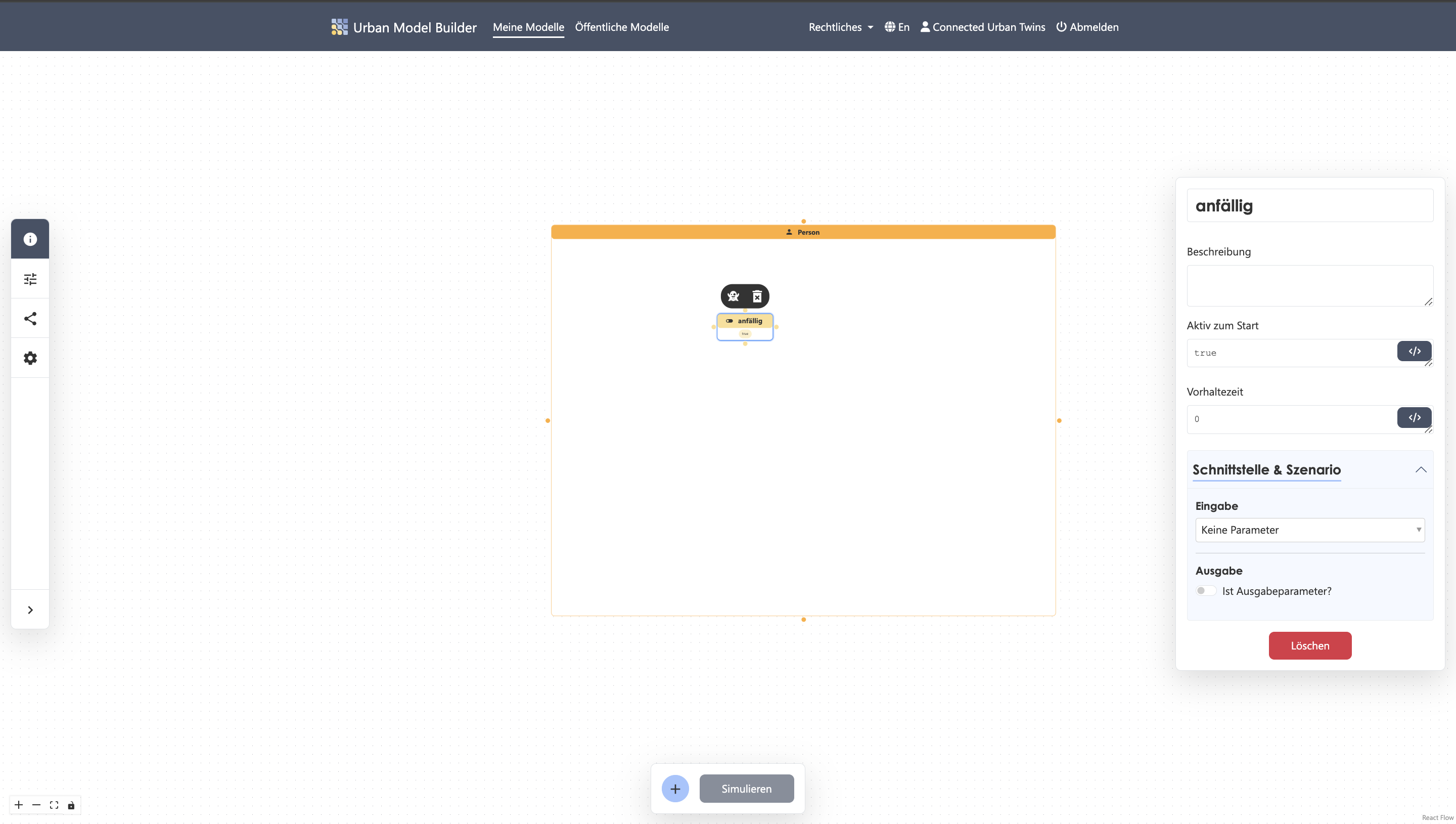
4. Create state "infected"
✔︎ Add a state to the "Person" agent and name it "infected"
✔︎ Connect the "susceptible" state to the "infected" state
✔︎ At the start time, this state is not [susceptible]. You can use the value from the connected "susceptible" primitive
✔︎ Holding time: 0
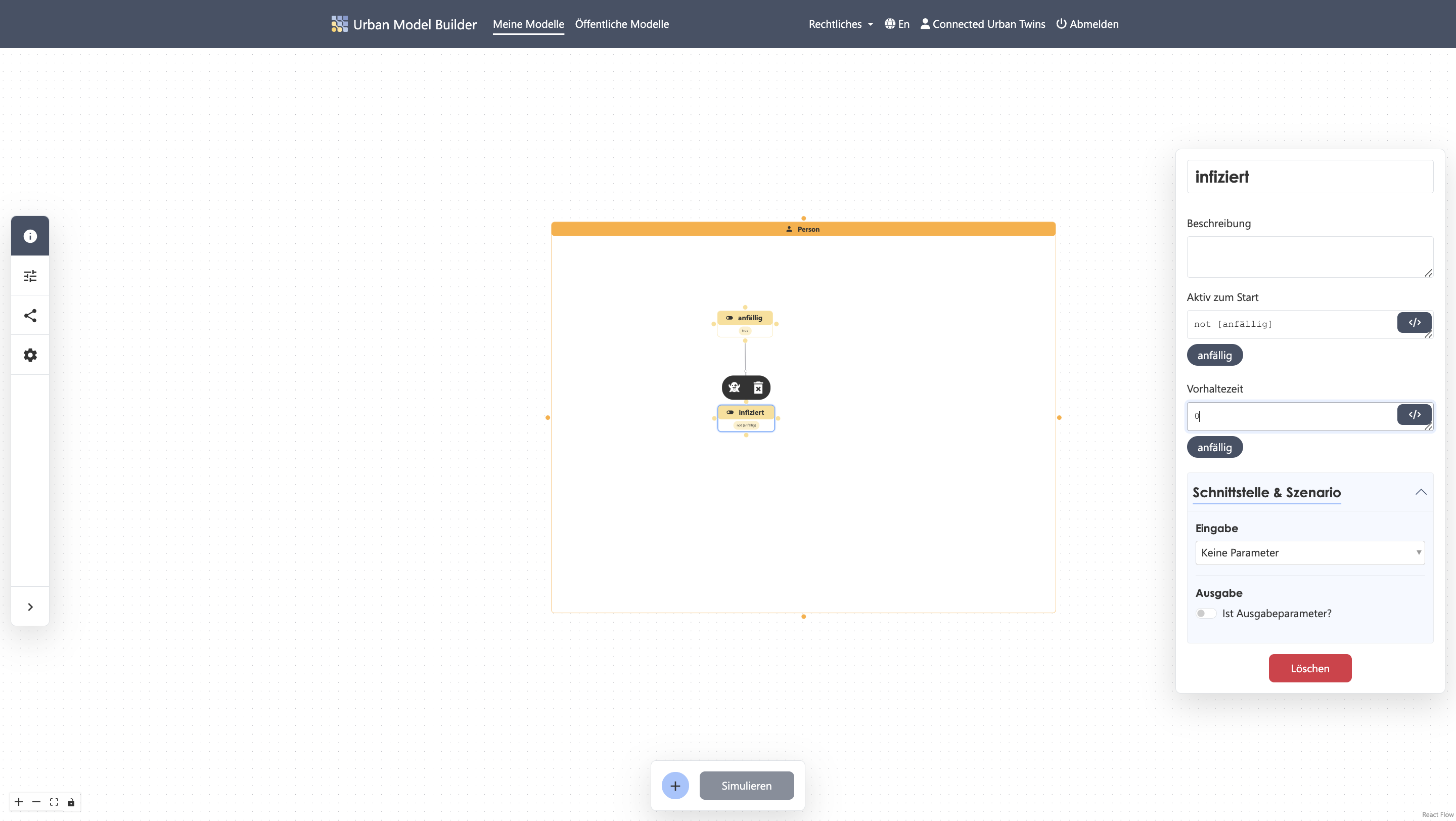
5. Create state "recovered"
✔︎ Add a state to the "Person" agent and name it "recovered"
✔︎ At the start time, this state is false, so set the parameter to false
✔︎ Holding time: 0
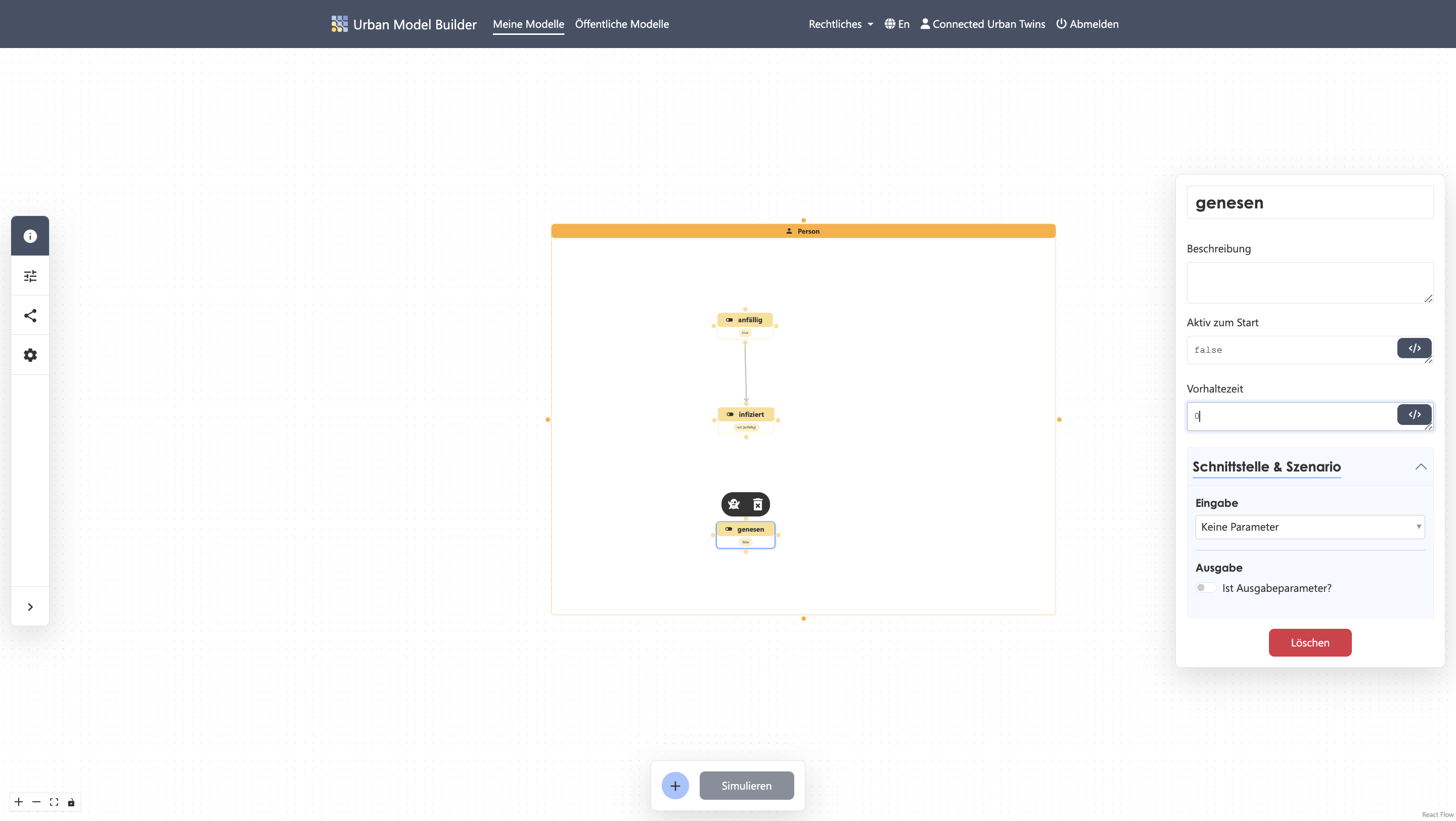
6. Create transition "Pathogen"
✔︎ Add a transition to the "Person" agent and name it "Pathogen"
✔︎ Connect the "susceptible" state to the "infected" state via this transition
✔︎ The trigger is a "Condition" caused by contact with other agents after 5 years
✔︎ Set value to Self.Index()=1 and Years=5
✔︎ Recalculate value at every time step
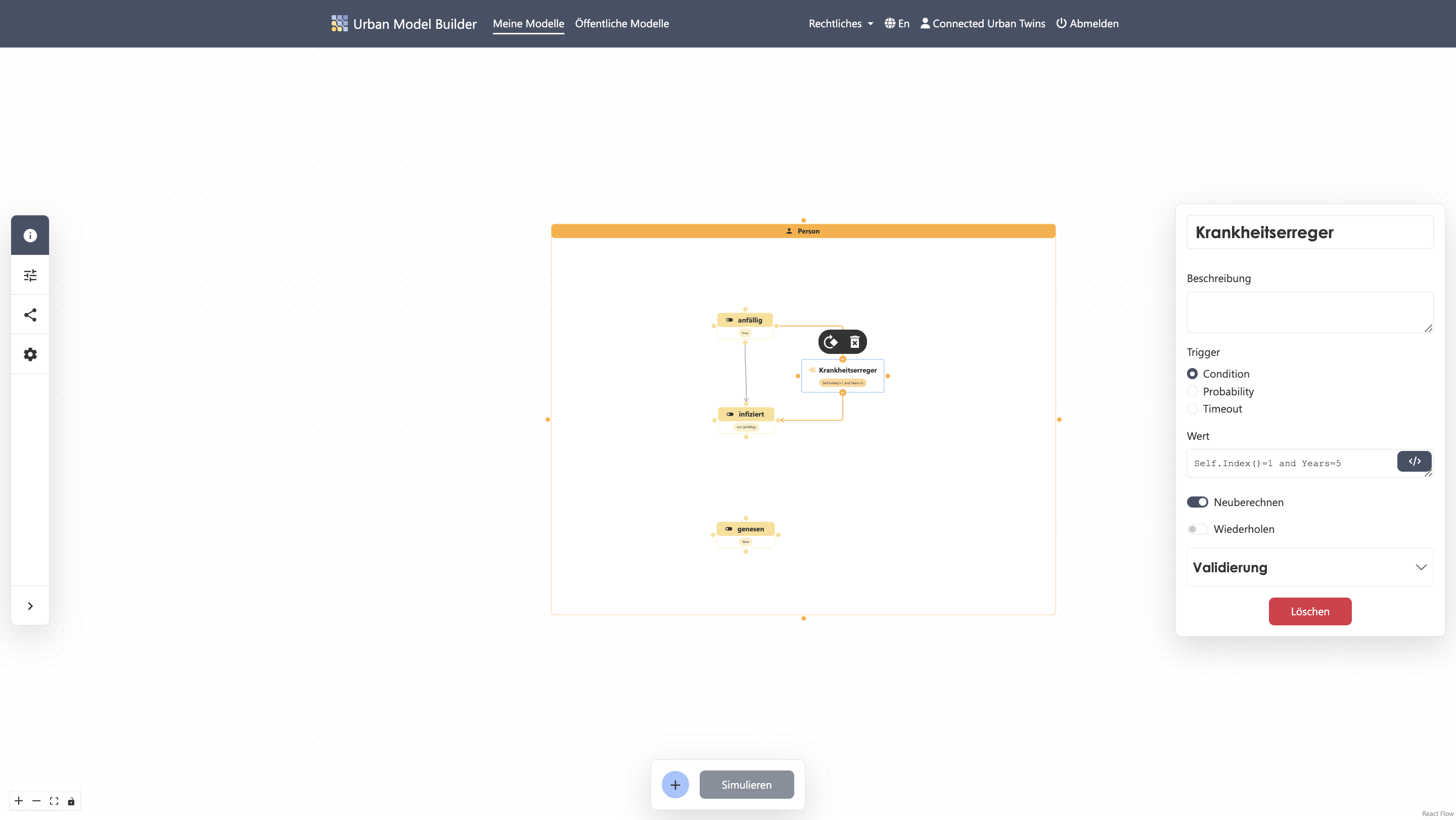
7. Create transition "Recovery"
✔︎ Add a transition to the "Person" agent and name it "Recovery"
✔︎ Connect the "infected" state to the "recovered" state via this transition
✔︎ The trigger is "Probability". The assumption is that 9% of infected individuals recover per time step.
✔︎ Set value to 0.09
✔︎ Recalculate value at every time step
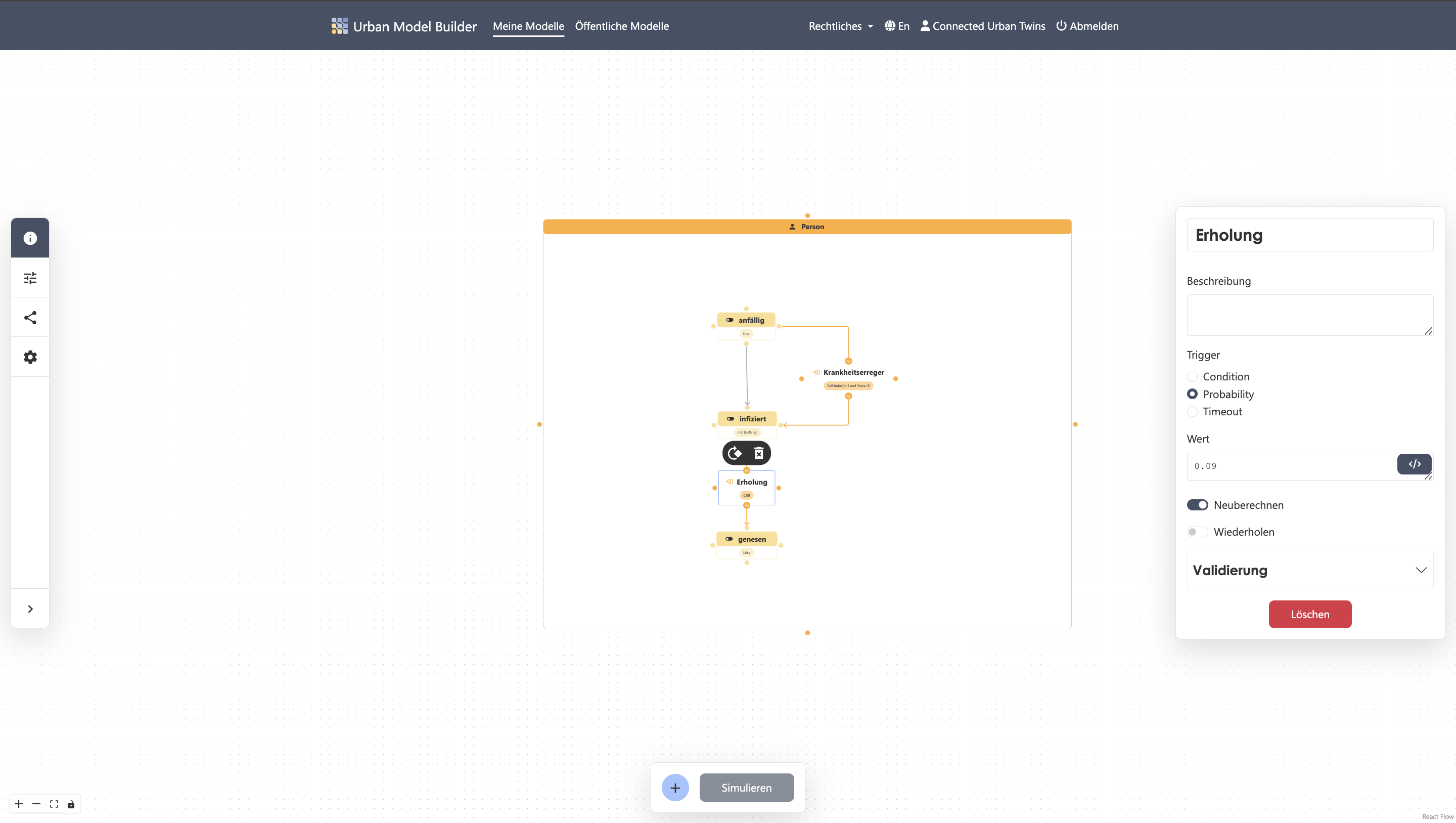
8. Create transition "Transmission"
✔︎ Add a transition to the "Person" agent and name it "Transmission"
✔︎ Connect the "susceptible" state to the "infected" state via this transition
✔︎ The trigger is "Probability". The probability of infection depends on the population, which we will model later.
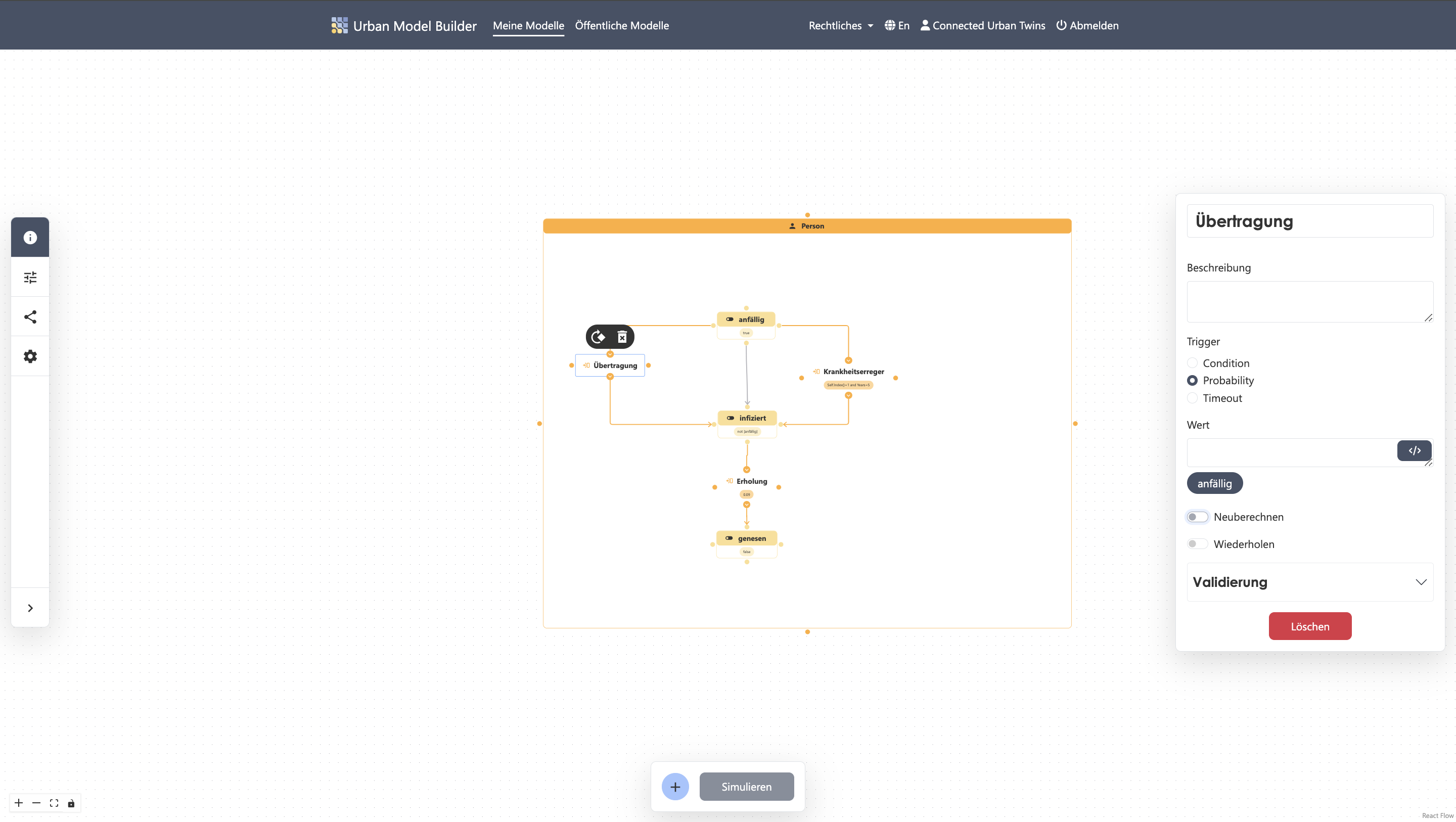
9. Create action "Catch Pathogen"
✔︎ Add an action to the "Person" agent and name it "Catch Pathogen"
✔︎ Connect the "susceptible" state to this action
✔︎ The trigger is a "Condition" that also depends on the population we will model next.
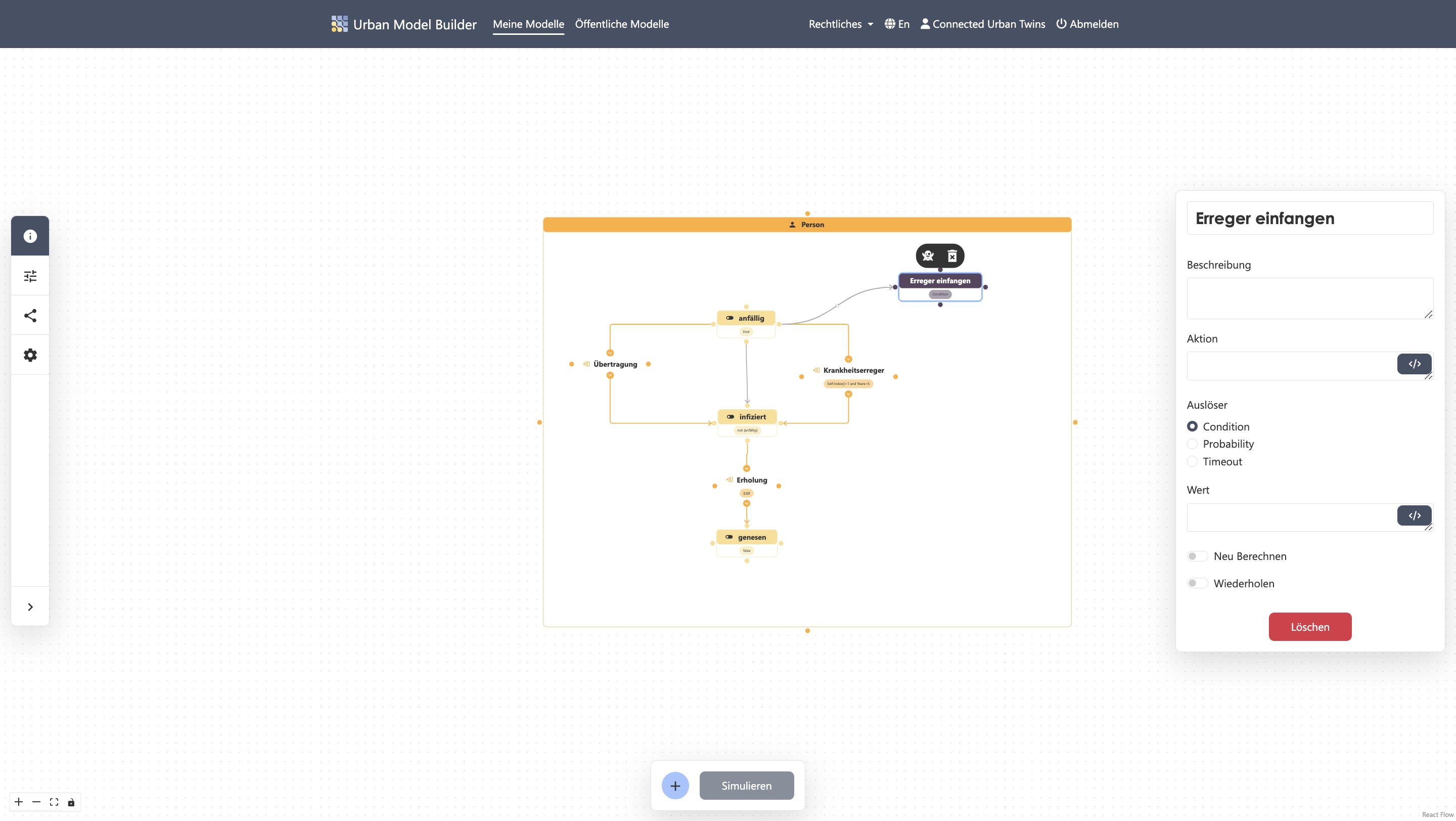
10. Create population
✔︎ Add a population that applies the agent "Person" behavior to the entire population
✔︎ Set values as follows:
Population size: 100
Geo width: 200
Geo height: 200
Geo placement: "Random"
Network type: "none"
✔︎ Set population as output parameter
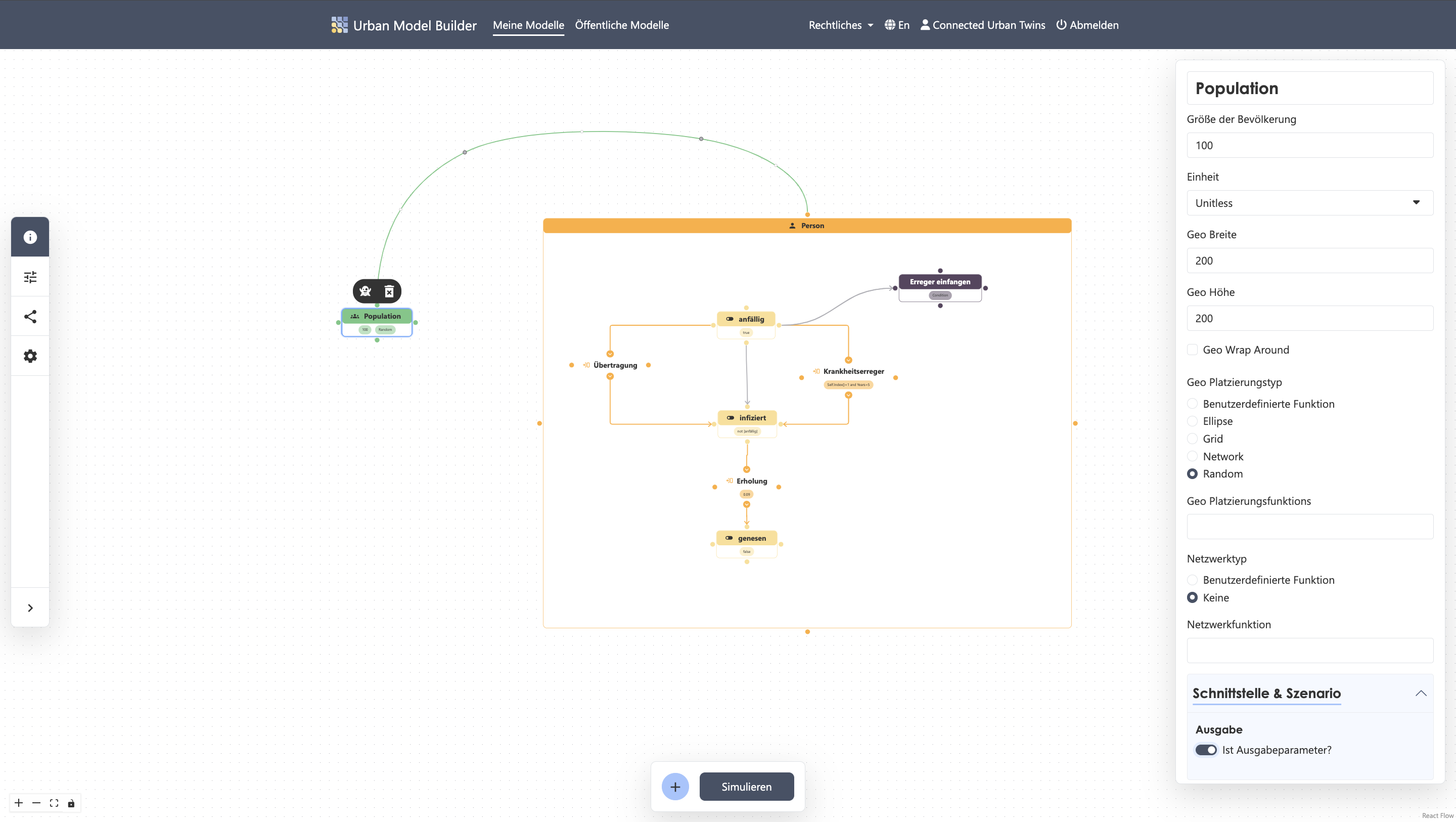
11. Equations for action "Catch Pathogen"
✔︎ Connect the population to the "Catch Pathogen" action in the "Person" agent
✔︎ Set action function to Self.moveTowards([Population].FindState([infected]).FindNearest(Self), -0.5)
✔︎ Set condition to [susceptible] and [Population].FindState([infected]).count()> 0
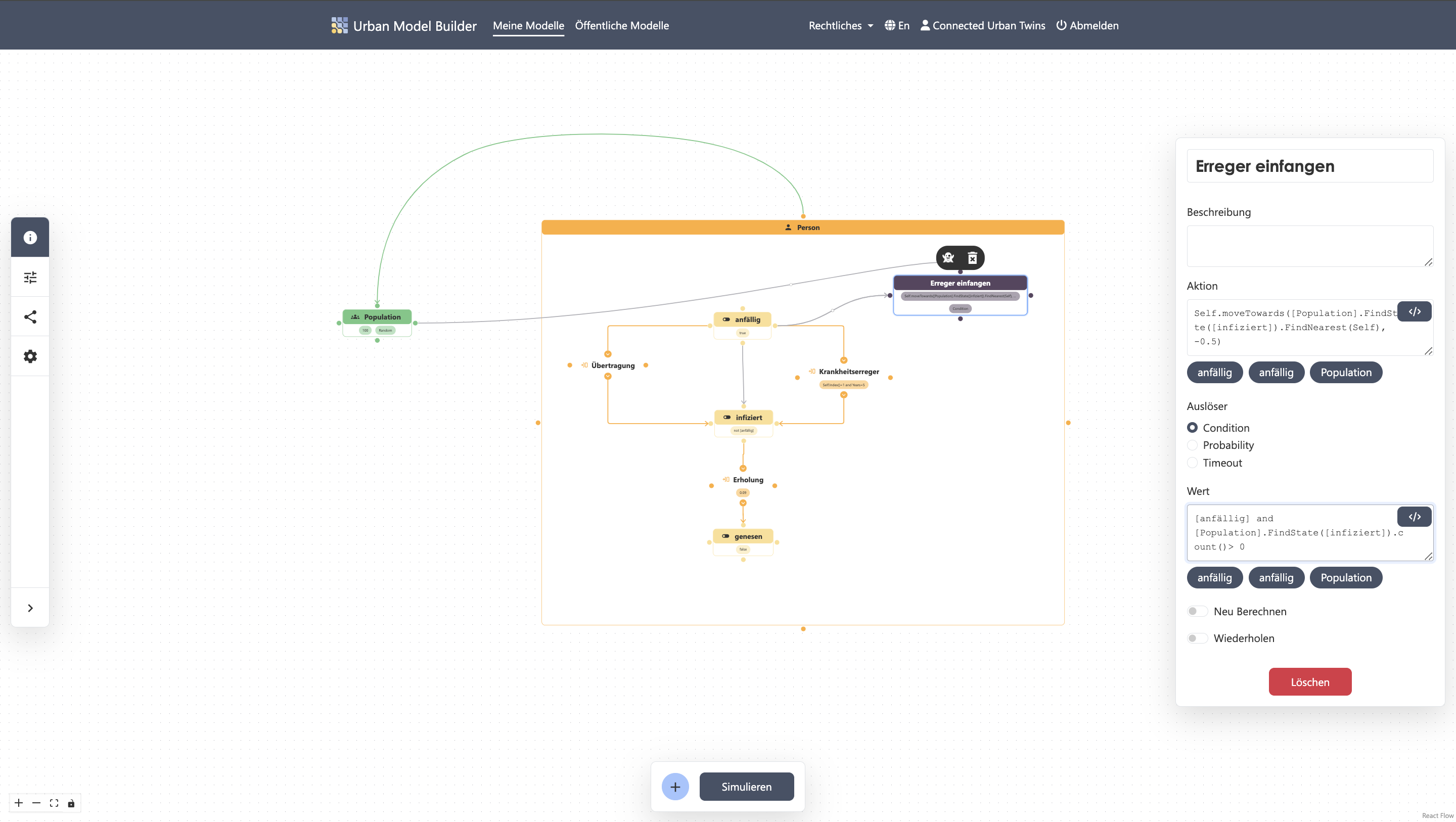
12. Equations for transition "Transmission"
✔︎ Connect the population to the "Transmission" transition in the "Person" agent
✔︎ Set value to:
infectors <- [Population].FindState([infected]).FindNearby(Self, 25)
probInfect <- min(1, infectors.Map(1/(distance(x, Self))^.75))
1 - Product(Join(1, 1 - probInfect))
✔︎ Recalculate value at every time step
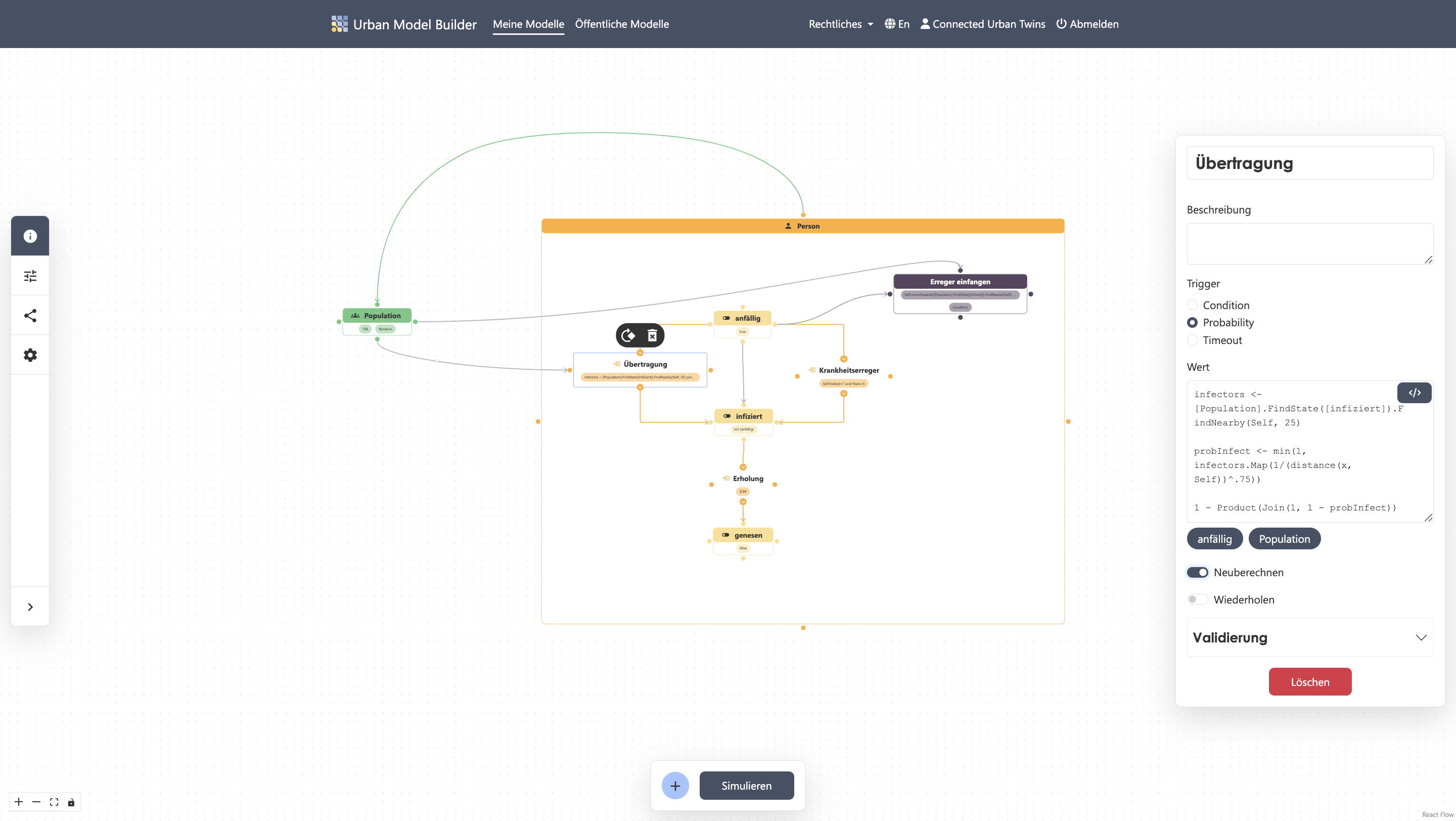
13. Create variable "Percentage Infected"
✔︎ Add a variable named "Percentage Infected"
✔︎ Connect the population to this variable
✔︎ Set value to [Population].FindState([infected]).Count()/[Population].FindAll().Count()*100
✔︎ Set variable as output parameter
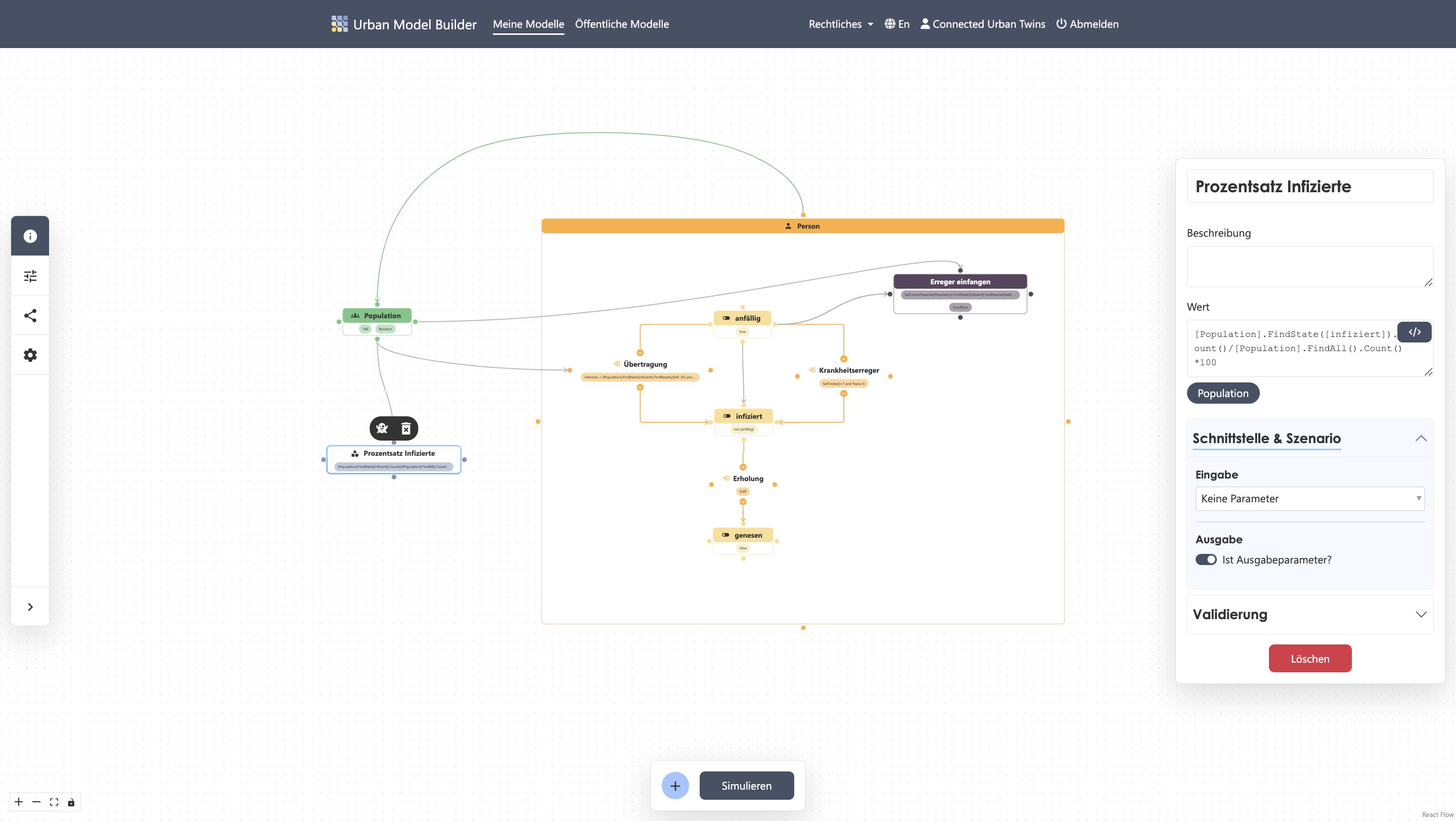
14. Simulation settings
✔︎ Open model settings in the sidebar
✔︎ Set values as follows:
Start: 0
Length: 20
Interval: 1
Unit: Years
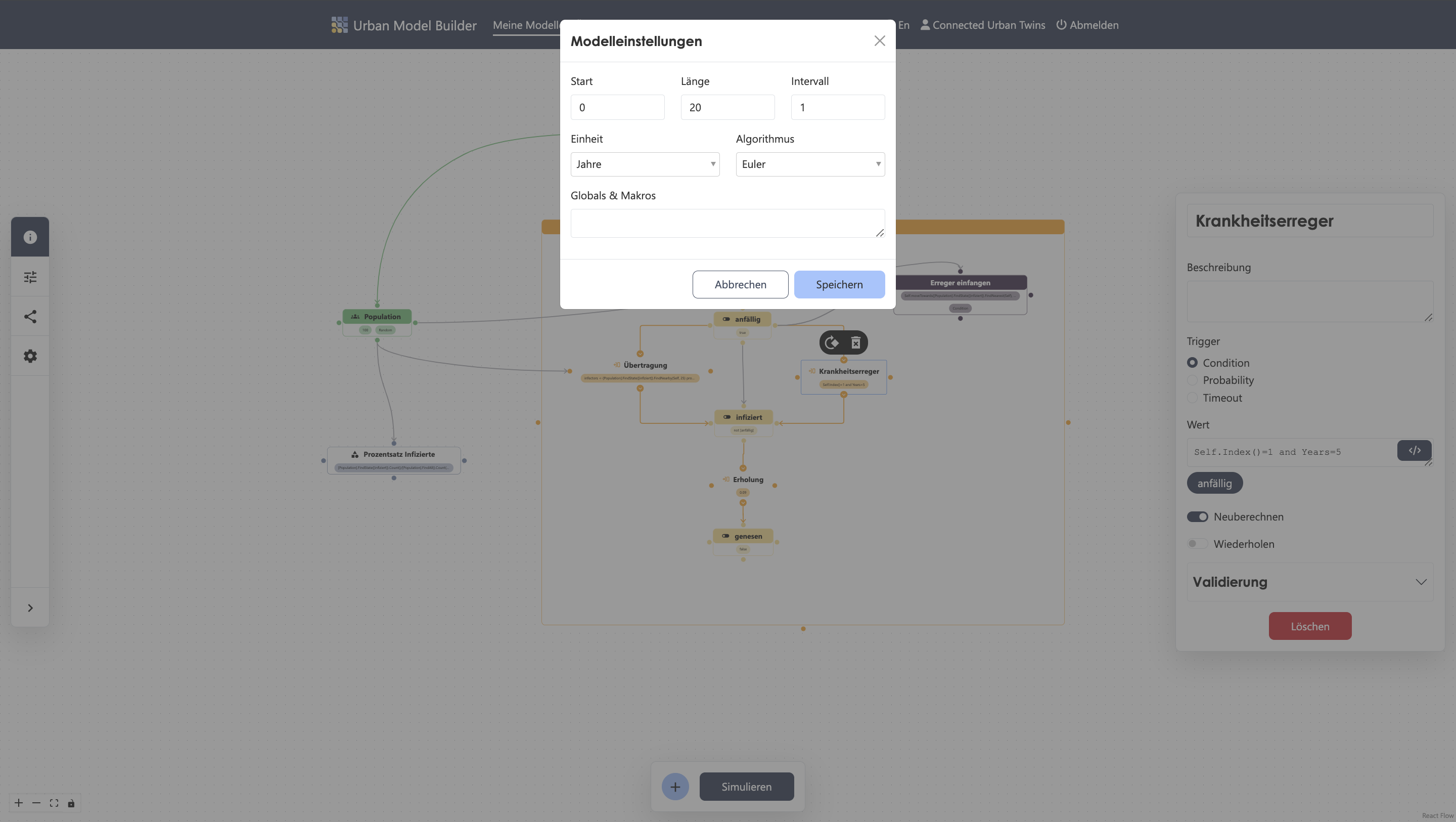
15. Run simulation
✔︎ Start the simulation by clicking the "Simulate" button in the Activebar
✔︎ View the scatter plot by clicking the "Scatter-Plot" tab
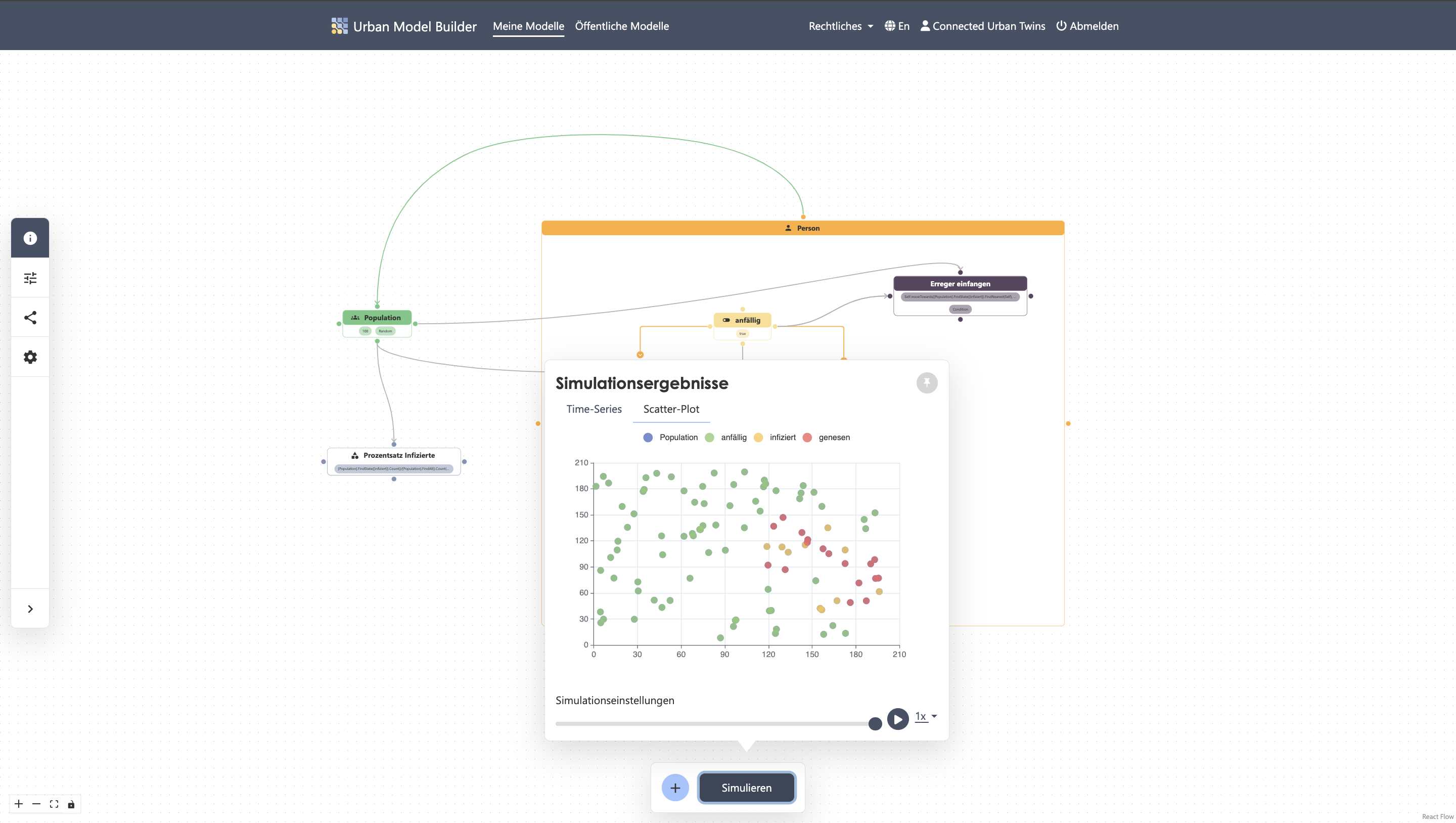
Your first agent-based model is complete!